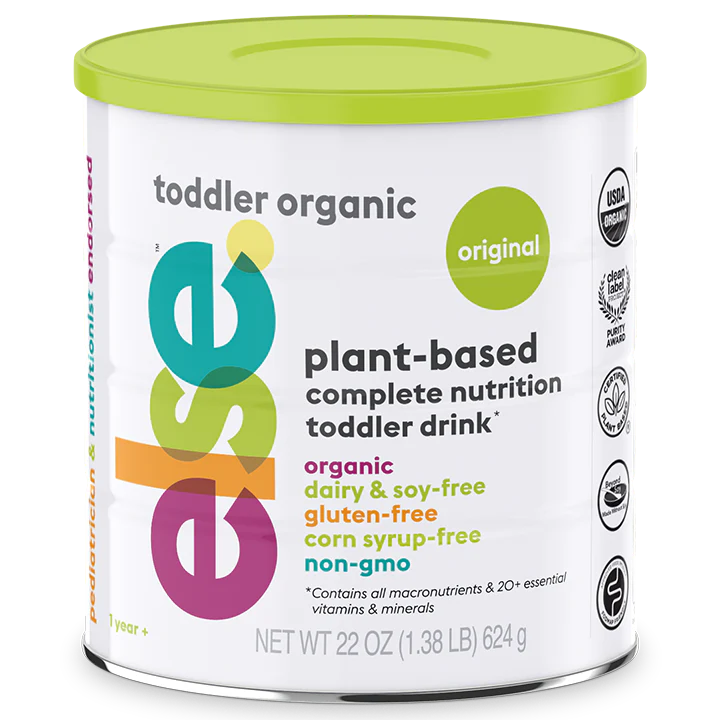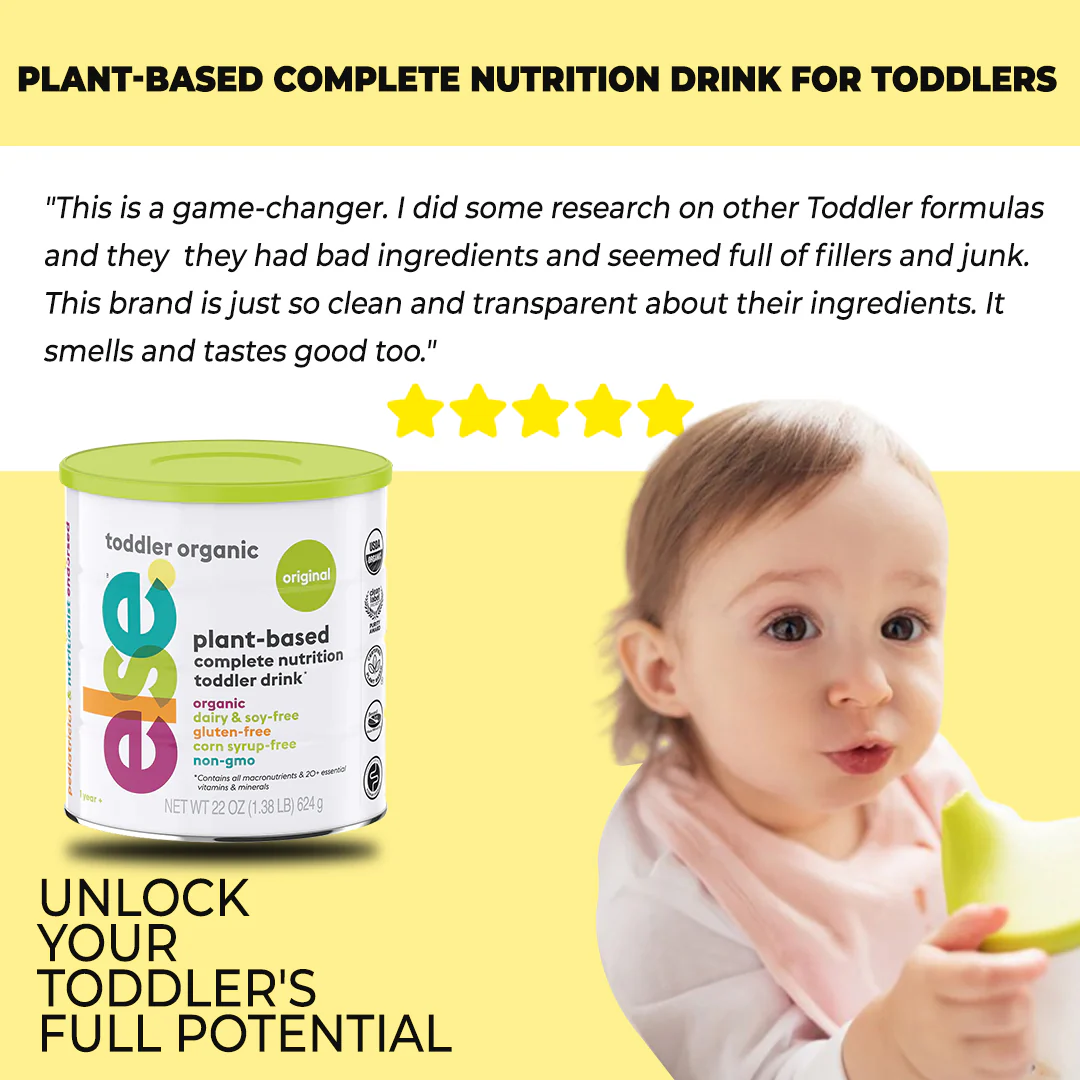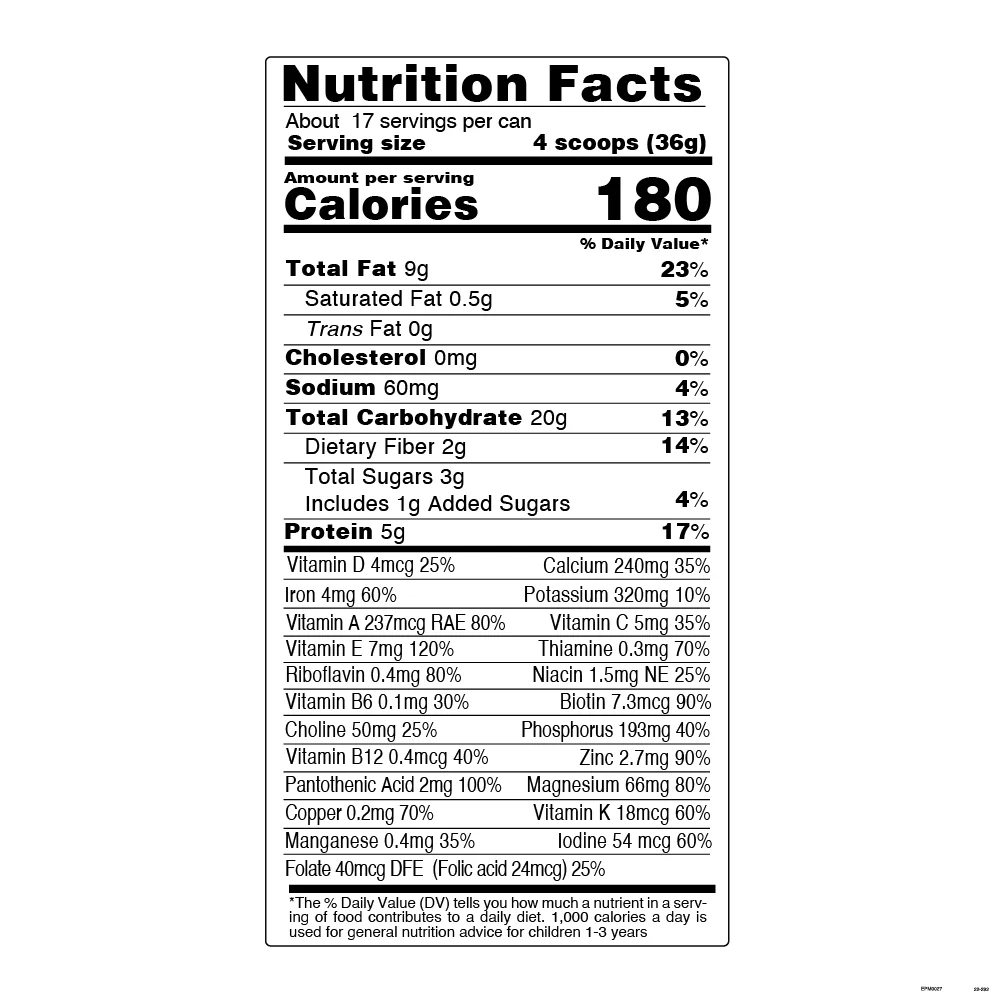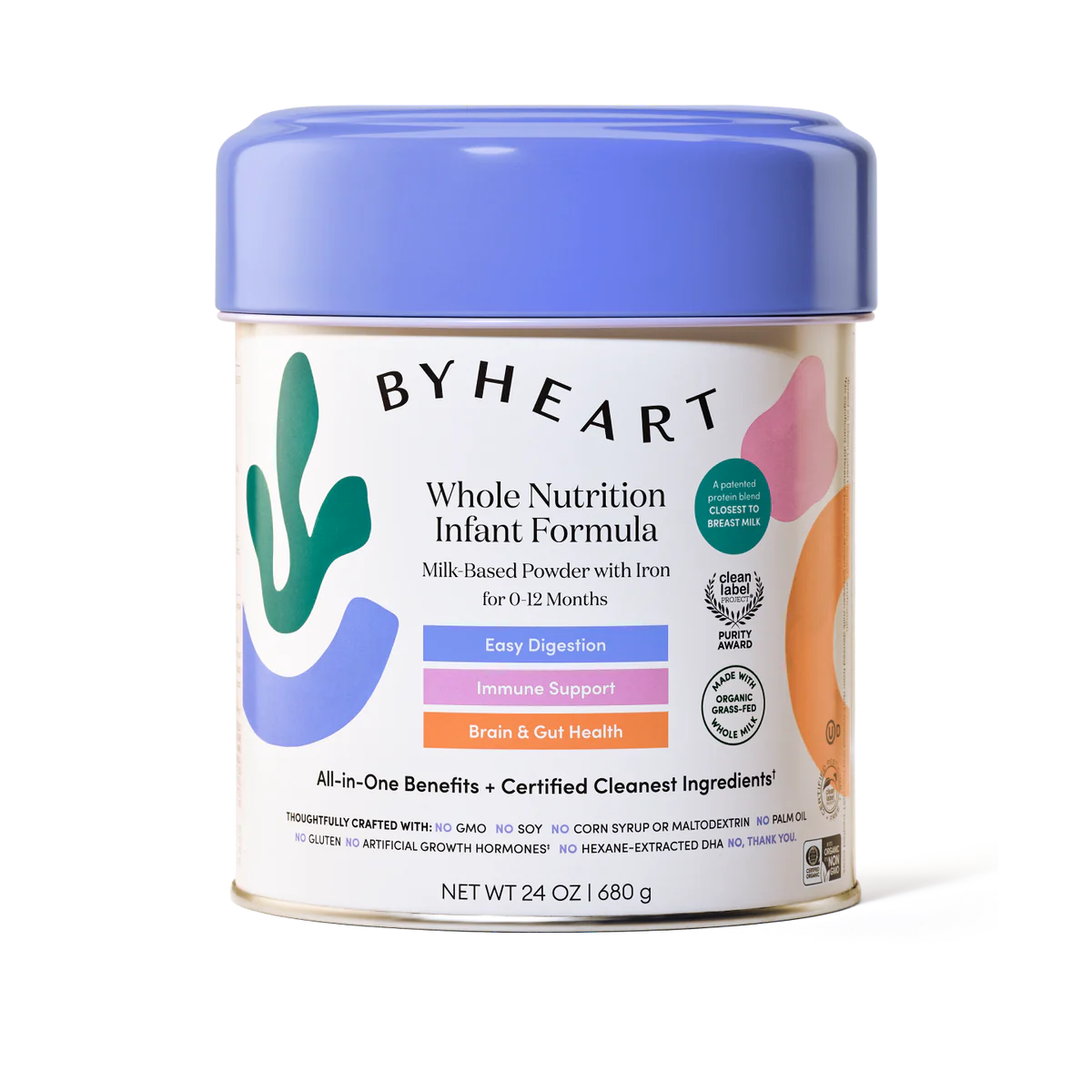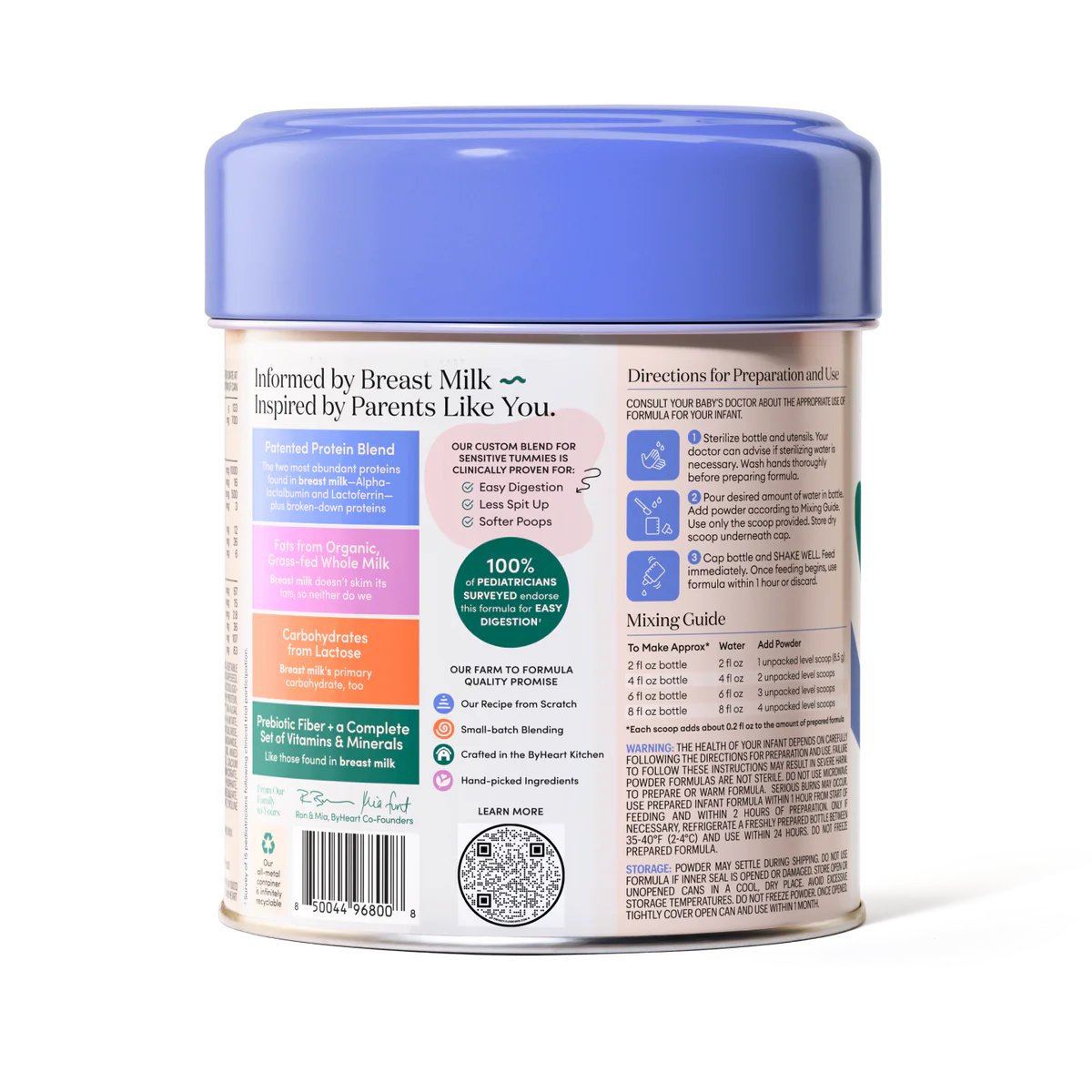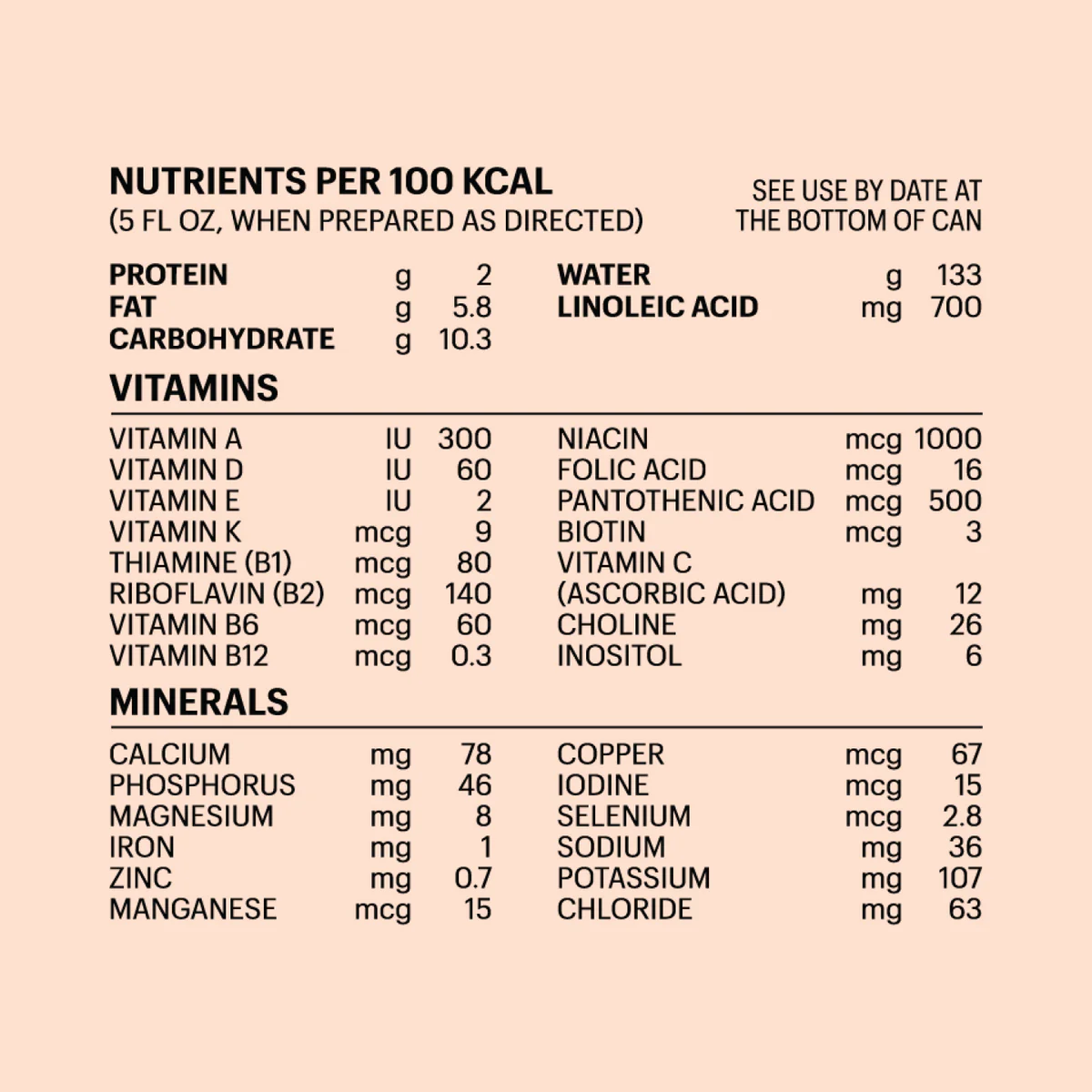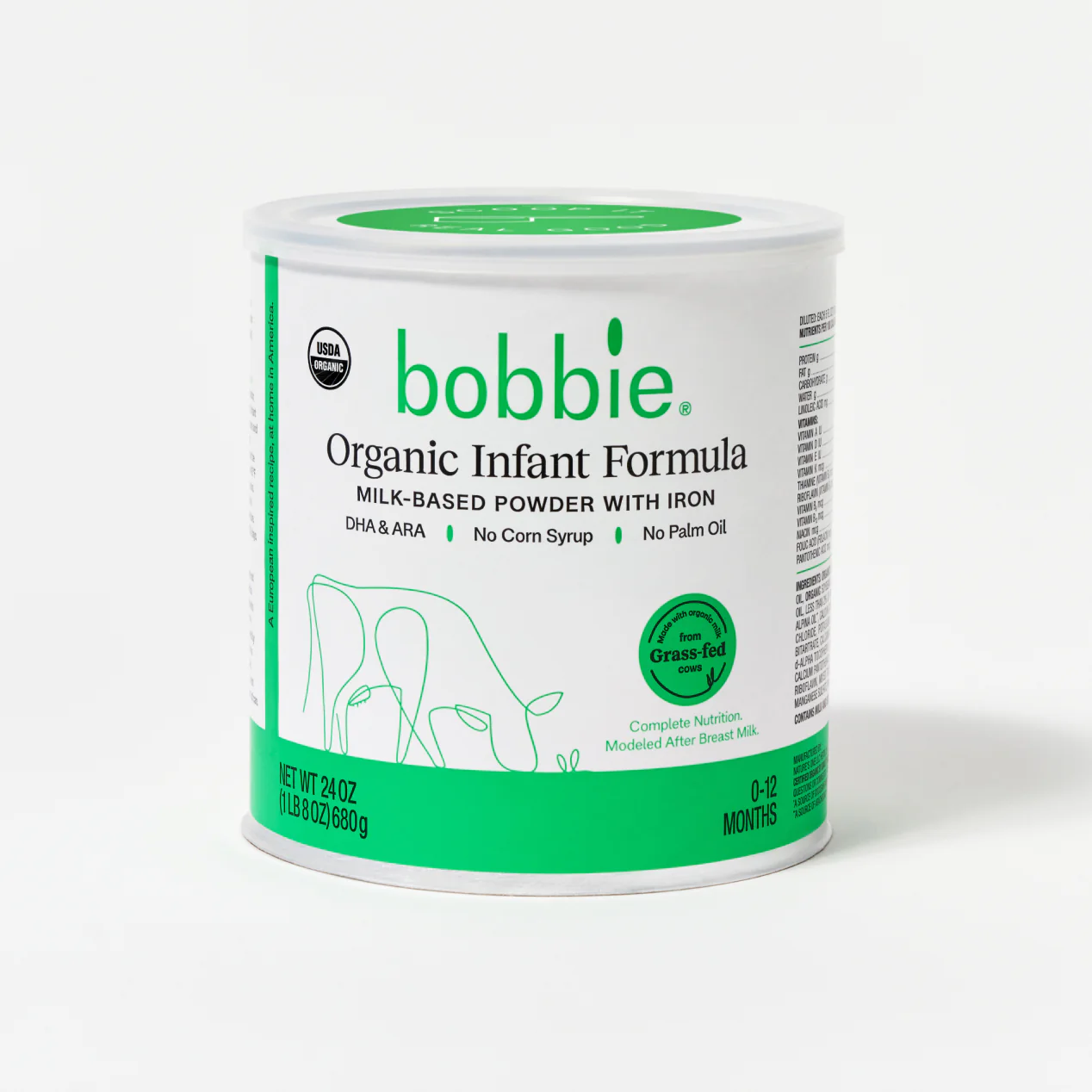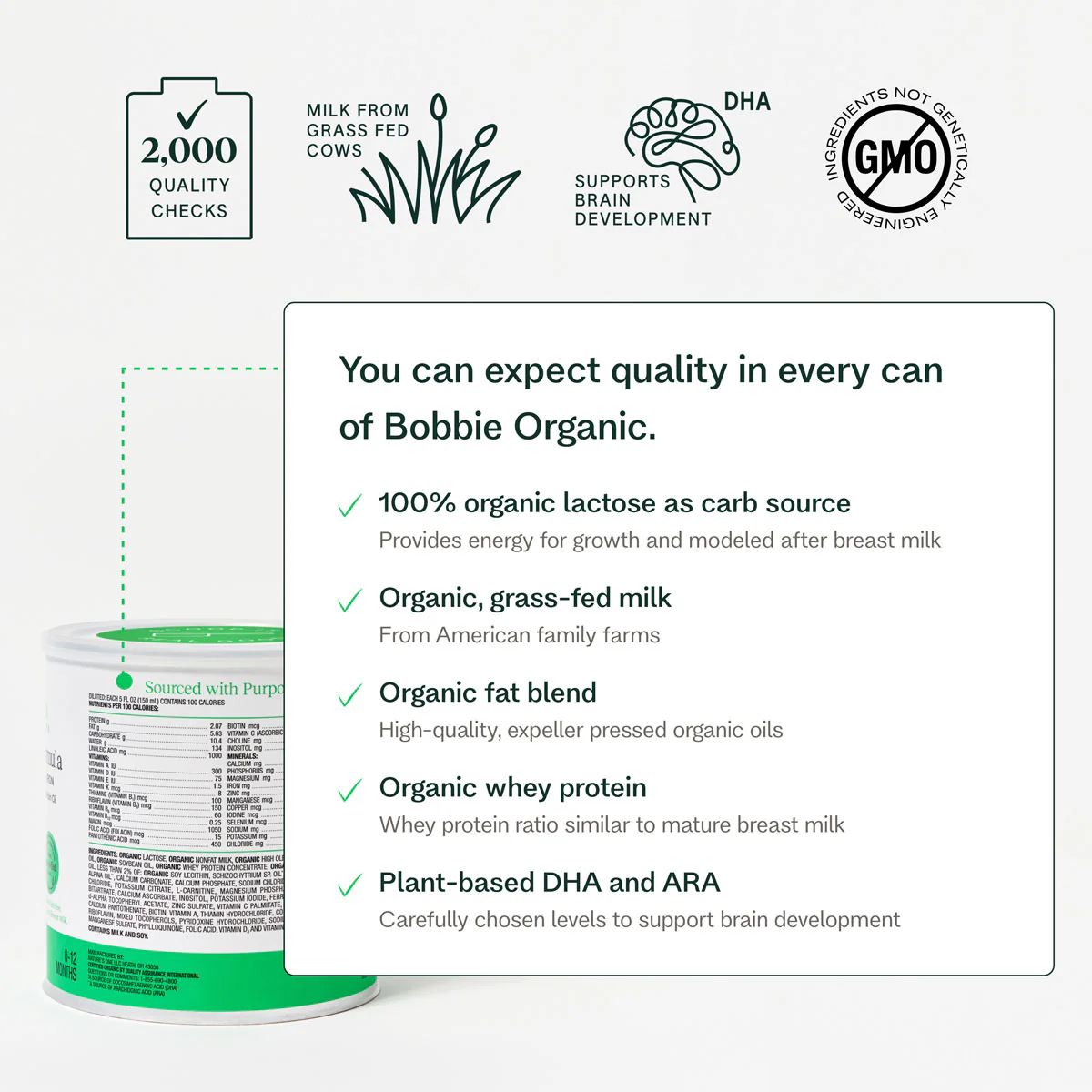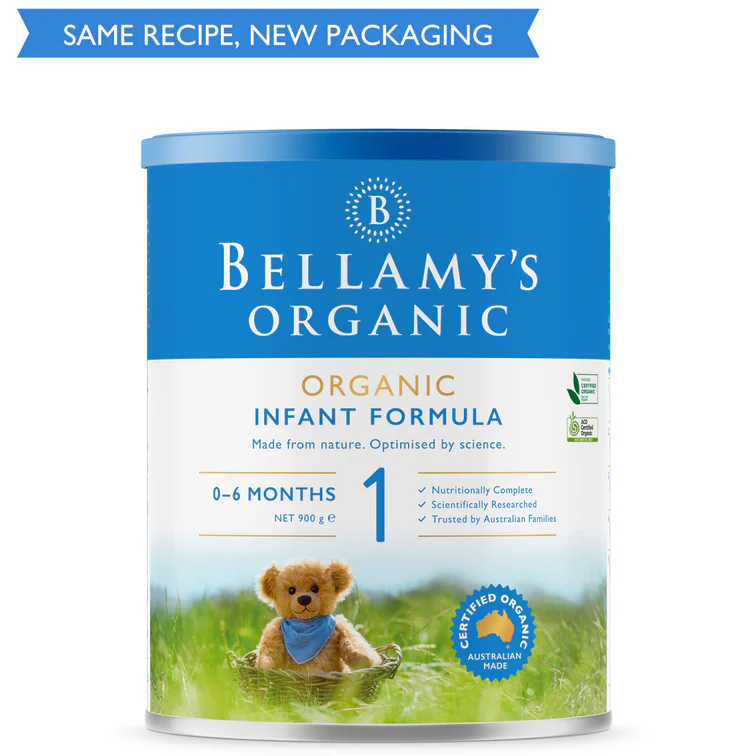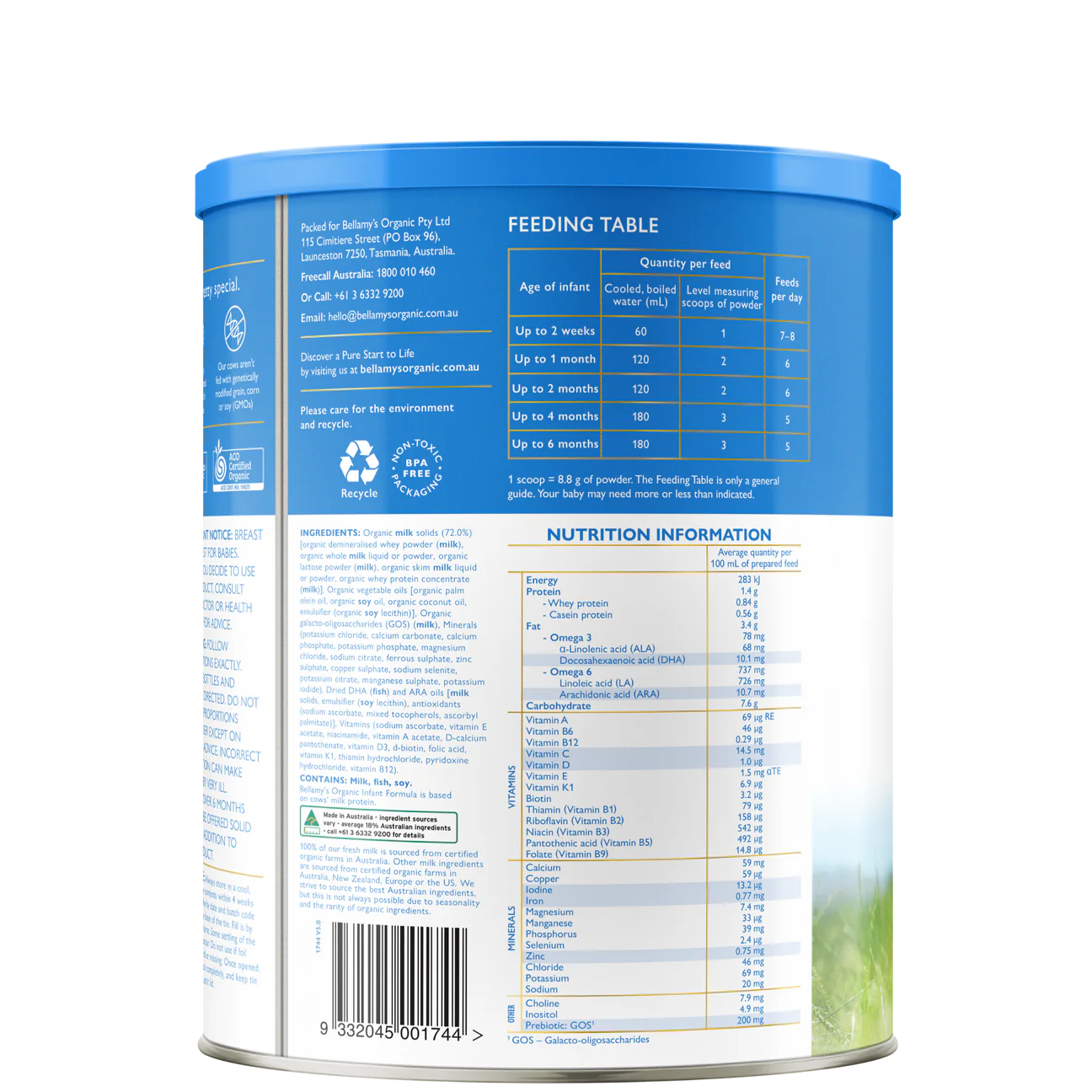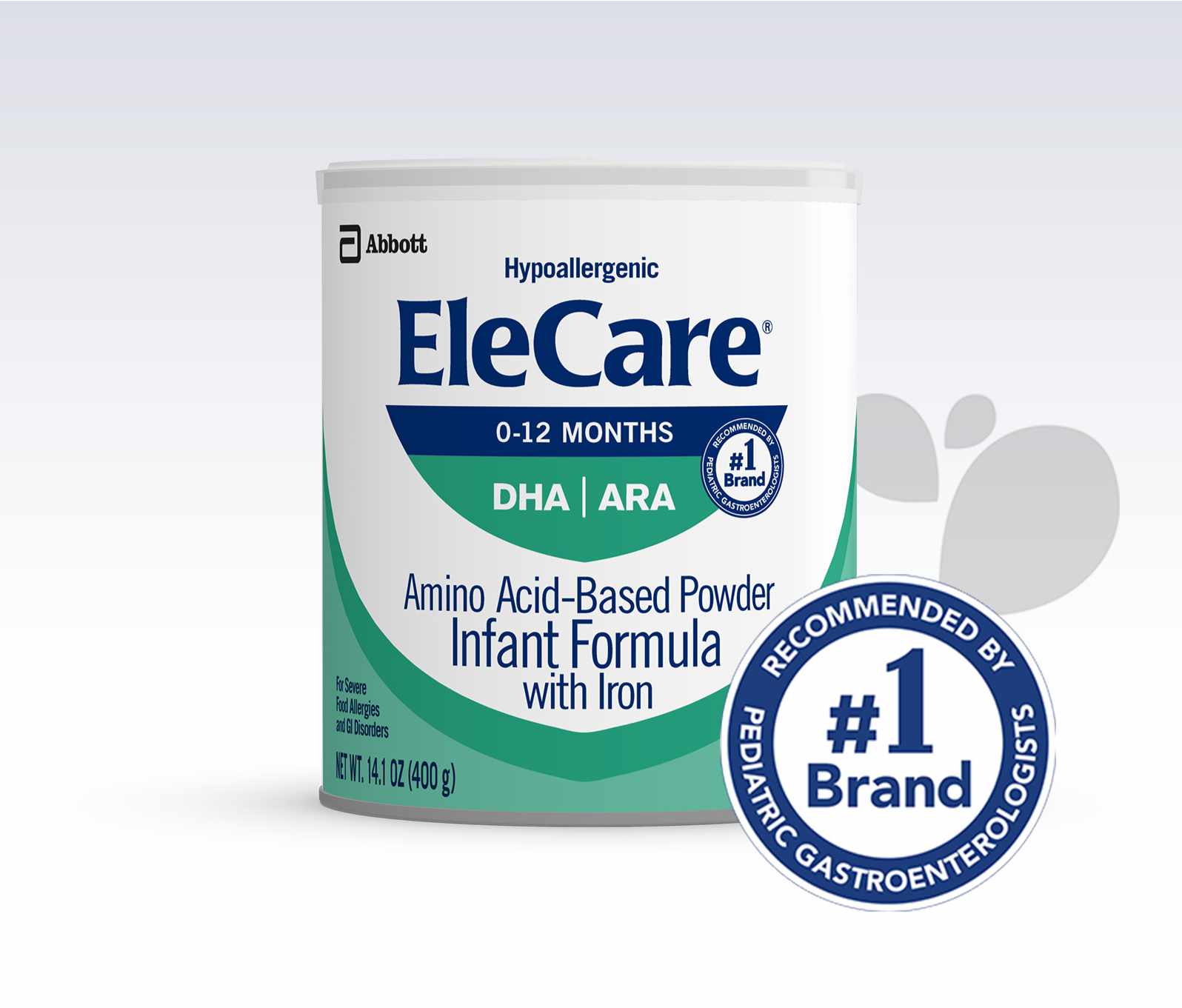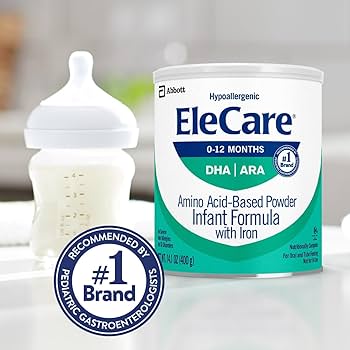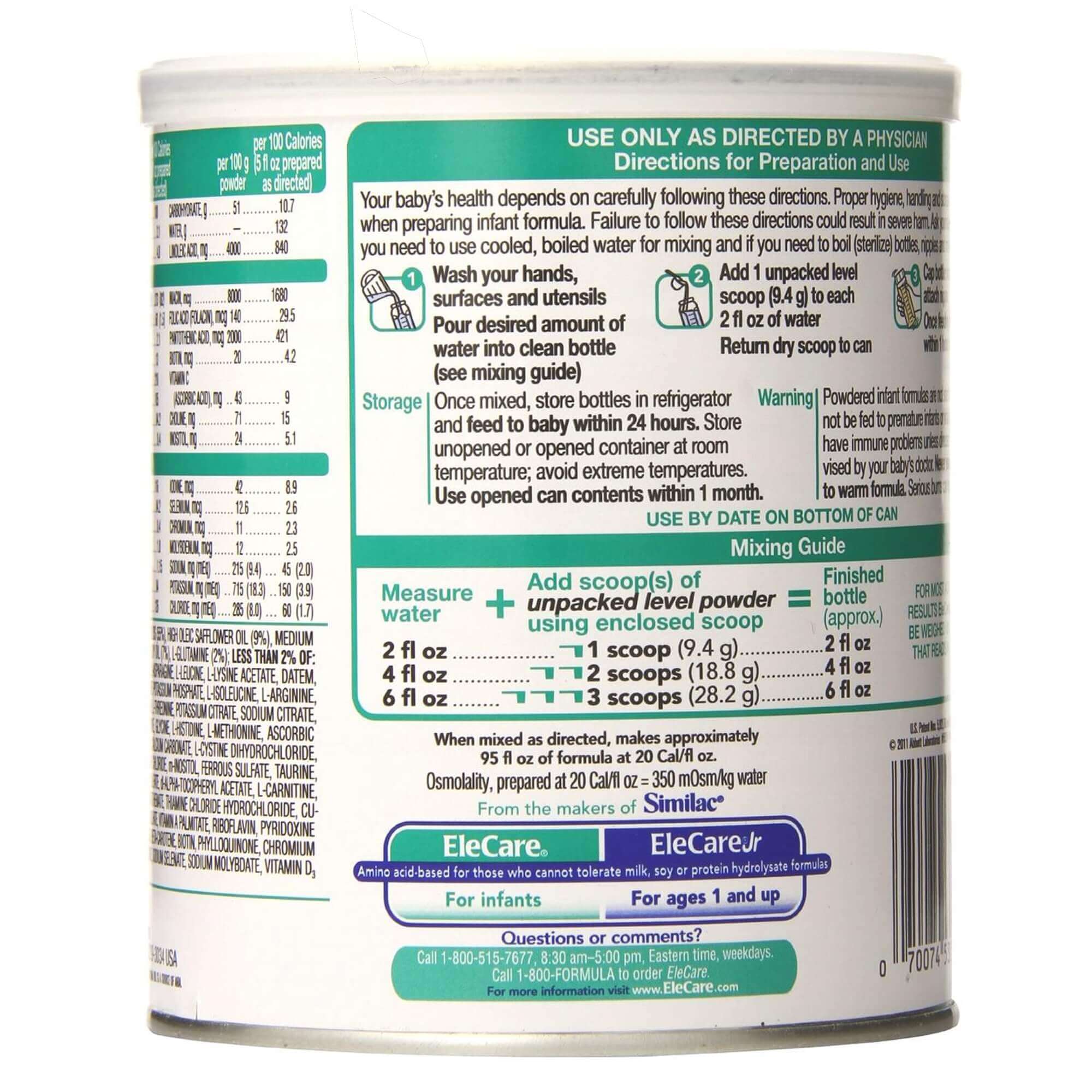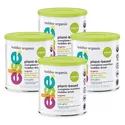5 Best Formulas for Combination Feeding: Find the Perfect Balance
Don't let feeding challenges stress you out. Explore combination feeding as a practical and nourishing solution that combines the best of both worlds
Updated September 18, 2024

You've likely heard the familiar saying, "breast is best," but let's be honest—life isn't always as straightforward as that. Maybe you're heading back to work, sharing feeding duties with a partner, or simply need a break. That's where formula comes in, offering convenience and carefully crafted nutrition.
But who says you have to choose? Let's explore how combination feeding is revolutionizing feeding, offering a way to balance breast milk's benefits with formula's practicality.
Whether you're feeling overwhelmed, seeking flexibility, or just curious about your options, combination feeding might be the solution you've been looking for.
» Support your baby's development with formula designed for combination feeding
Our Pick: Best Formulas for Combination Feeding
- Best overall formula for combination feeding: Else Nutrition Plant-Based Complete Nutrition Formula
- Best gentle formula for combination feeding: ByHeart Whole Nutrition Infant Formula
- Best nutrient-dense formula for combination feeding: Bobbi Organic Infant Formula
- Best immune-boosting formula for combination feeding: Bellamy's Organic Step 1 Infant Formula
- Best hypoallergenic formula for combination feeding: Abbott Nutrition EleCare
What is Combination Feeding?
Combination feeding, also known as mixed feeding or partial breastfeeding, is when a mother feeds her baby breastmilk and formula. It can be used in various situations and at different stages of your baby's life:
- From Birth: Some parents choose to supplement with formula from the beginning, especially if there are initial breastfeeding challenges.
- Returning to Work: Many mothers introduce combination feeding when they return to work and can't breastfeed as frequently.
- Gradual Weaning: As you begin to wean your baby off breast milk, this can ease the transition.
- Low Milk Supply: If you're not producing enough breast milk to meet your baby's needs, it can help ensure your baby is getting adequate nutrition.
- Medical Reasons: Some medications or health conditions may require moms to limit breastfeeding, making combination feeding a good option.
- Personal Choice: Some parents simply prefer the flexibility and balance that combined feeding offers.
» Check out these tips for a gentle transition from breastfeeding
The Benefits of Combination Feeding
Combination feeding offers several advantages for babies and parents:
- Flexibility: One of the main advantages is the flexibility it offers by creating a more adaptable feeding schedule. This can be particularly helpful for those with busy lifestyles.
- Nutritional Balance: Babies receive the unique benefits of breastmilk—such as antibodies and perfectly tailored nutrition—and the carefully formulated nutrients in high-quality infant formulas.
- Reduced Pressure: Combined feeding can take some pressure off mothers who may struggle with exclusive breastfeeding due to low milk supply, physical discomfort, or lack of time.
- Shared Feeding Responsibilities: This method lets partners participate more in feeding, letting them bond with the baby while sharing the responsibility of nighttime feedings.
- Maintaining Milk Supply: For mothers who want to keep breastfeeding but need to supplement, it can help maintain milk supply while reducing the demand for constant pumping or feeding.
» Learn why choosing organic is the healthy option for your baby
5 Best Formulas for Combination Feeding
How to Choose the Right Formula
When selecting a formula, consider these essential qualities:
- Nutritional Content: Look for a formula that closely mimics the nutritional profile of breast milk. It should have a balanced mix of proteins, carbohydrates, fats, vitamins, and minerals.
- Allergen Considerations: If your baby has shown signs of allergies or sensitivities, consider hypoallergenic or specialized formulas that address common allergens like cow's milk protein or soy.
- Ease of Digestion: Opt for formulas that are designed to be gentle on your baby's developing digestive system. Some formulas use partially hydrolyzed proteins or specific carbohydrate blends to aid digestion.
- Added Benefits: Many premium formulas now include prebiotics, probiotics, DHA, and ARA—components naturally found in breast milk that support immune function and brain development.
- Accessibility: Choose a readily available formula in your area to ensure a consistent supply.
» Tired of commercial formulas? Check out these alternatives
Tips for Successful Combination Feeding
- Gradual Introduction: Start by introducing small amounts of formula, perhaps mixing it with breastmilk in the same bottle to help your baby adjust to the new taste.
- Consistent Bottle Type: Use the same bottle type for breastmilk and formula to minimize confusion for your baby.
- Timing Matters: Some mothers prefer breastfeeding during the day and formula for night feedings, but find what works best for you and your baby.
- Check Your Baby's Response: Pay attention to how your baby reacts to the new feeding regimen. Watch for signs of digestive discomfort, changes in bowel movements, or unusual fussiness.
- Maintain Breastfeeding Sessions: If you wish to continue breastfeeding, try maintain regular nursing sessions to help keep up your milk supply.
» Discover our expert tips for finding the right formula for your baby
Signs That Combination Feeding is Working
To ensure your baby is tolerating the combined approach, monitor their progress closely. Here are some signs that things are going well:
- Your baby is gaining weight appropriately
- Diapers are consistently wet and dirty
- Your baby seems satisfied after feeding
- You're feeling more relaxed and less stressed about feeding
If you notice persistent diarrhea, vomiting, excessive crying, or difficulty gaining weight, it's important to consult with your pediatrician. These could be signs that your current feeding plan needs adjustment.
» Discover the signs that indicate feeding issues in your baby
A Flexible Approach to Feeding
The journey of feeding a baby is deeply personal and often evolves over time. Combination feeding is not a one-size-fits-all solution, but rather a customizable approach that can be adapted as your baby grows and your circumstances change.
» Nurture your baby's growth with formula tailored for combination feeding
Whether you're supplementing occasionally or regularly, the key is to choose high-quality formulas that complement breastmilk's benefits. Ultimately, fed is best, and combination feeding provides another valuable tool in ensuring your baby thrives.
The content and advice provided in this article are for informational purposes only and are not a substitute for medical diagnosis, treatment, or advice for specific medical conditions.
Always consult a pediatrician to understand your child's needs. The article expresses the views of the article's editor.








